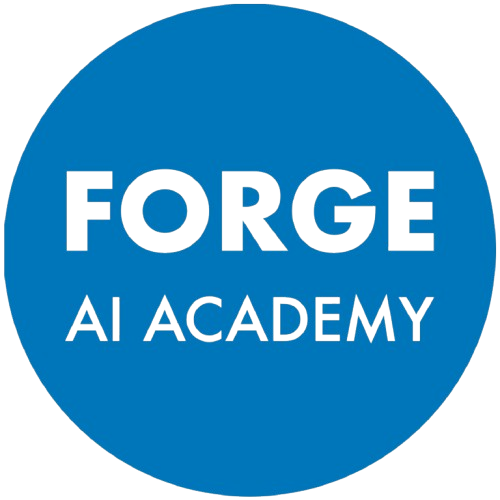Curriculum
Project-Based AI Learning
Our curriculum is structured around hands-on projects using real-world AI tools. Students don’t just learn about artificial intelligence—they actively create with it, building skills that prepare them for an AI-powered future.
Core AI Tools & Technologies
Language AI
- ChatGPT & Claude: Prompt engineering, storytelling, content creation
- Language Models: Understanding capabilities and limitations
- AI Assistants: Creating specialized assistants for specific tasks
Visual AI
- Midjourney: Digital art creation through text prompts
- DALL·E: Concept illustration and design
- Stable Diffusion: Custom image generation and editing
Audio & Video AI
- ElevenLabs: Voice synthesis and audio production
- Runway: Video editing and special effects
- Pika Labs: Animation and motion creation
Coding & Development
- Scratch with AI Extensions: Visual programming for beginners
- Python Basics: Fundamental coding concepts
- GitHub Copilot: AI-assisted programming
AI Platforms
- Google Teachable Machine: Creating custom AI models without coding
- Hugging Face: Exploring pre-built AI applications
- Lobe.ai: Building and training simple machine learning models
Age-Appropriate Learning Paths
Level 1: AI Explorers (Ages 8-10)
Focus: Creative applications and AI fundamentals
Sample Projects:
- Illustrated AI storybooks published on Amazon Kindle
- Custom AI art galleries
- Simple voice assistants
- Interactive games with AI characters
Skills Developed:
- Basic prompt engineering
- Understanding AI capabilities
- Creative problem-solving
- Digital literacy fundamentals
Level 2: AI Innovators (Ages 11-13)
Focus: Tool mastery and project complexity
Sample Projects:
- Short films with AI-generated elements
- Original music with AI composition assistance
- Interactive websites with AI components
- Data visualization projects
Skills Developed:
- Advanced prompt engineering
- Basic Python programming
- Project planning and execution
- Critical thinking about AI ethics
Level 3: AI Architects (Ages 14-17)
Focus: Advanced applications and independent creation
Sample Projects:
- Custom AI models for specific applications
- Multi-platform integrated projects
- AI-enhanced mobile apps
- Solutions to real-world problems using AI
Skills Developed:
- Complex AI system design
- Intermediate programming concepts
- AI ethics and responsible development
- Portfolio development for college applications
Monthly Project Cycles
Each month focuses on a different AI application area, allowing students to build diverse skills while completing tangible projects:
- Digital Publishing Month: AI-assisted book creation from concept to publication
- Media Production Month: Audio and video content creation with AI tools
- Game Development Month: Interactive experiences using AI components
- Art & Design Month: Visual creation across multiple AI platforms
- Problem-Solving Month: Applying AI to address real-world challenges
Educational Approach
Learning Components
- Guided Instruction: Structured lessons on tools and techniques
- Hands-On Practice: Immediate application of concepts
- Project Work: Focused time to develop personal creations
- Peer Collaboration: Opportunities to work in teams
- Showcase Preparation: Polishing work for presentation
Assessment Methods
- Project completion and quality
- Technical skill development
- Creative problem-solving ability
- Collaboration and communication
- Self-directed learning capacity
Beyond Technical Skills
Our curriculum goes beyond teaching AI tools to develop these essential capabilities:
- Critical Thinking: Evaluating AI outputs and limitations
- Creative Expression: Using AI as a tool for personal creation
- Ethical Awareness: Understanding implications of AI use
- Digital Citizenship: Responsible technology use
- Entrepreneurial Mindset: Identifying opportunities with AI

